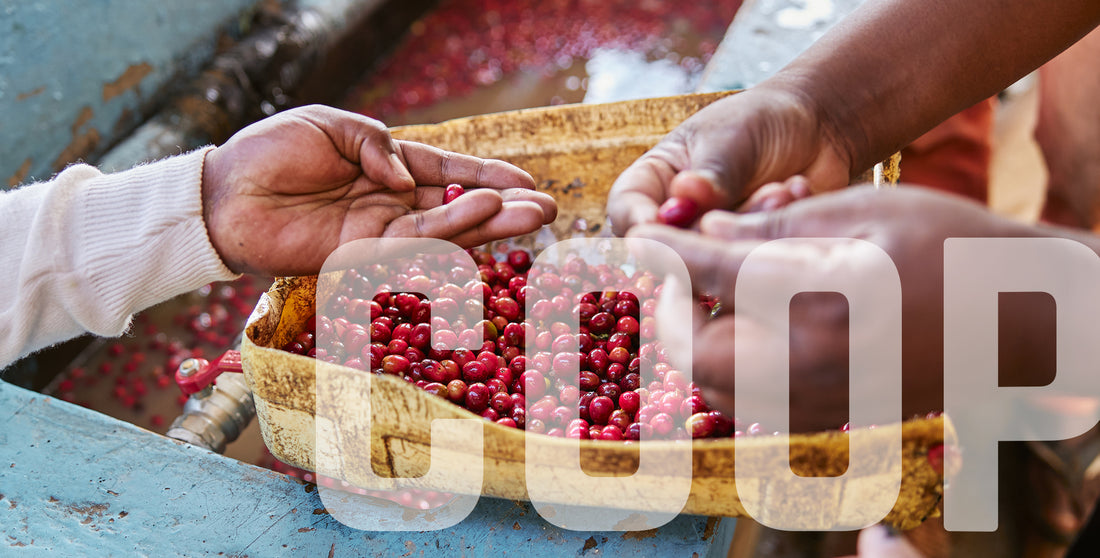
Coffee Cooperatives: Strength in Numbers
Share
Coffee cooperatives can be very beneficial to many small coffee farmers and an invaluable commodity when size isn’t on your side.
Across the globe, you’ll find coffee being produced, processed, and sold in cooperatives. In the simplest sense of the word, these can be defined as organized groups of smallholder farmers who work together to leverage their scale.
On a small farm, collaboration is necessary for survival. Neighbouring farmers lean on each other for support when disasters inevitably strike and to carry out ordinary tasks like sharing labour at harvest time. When a producer chooses to join a coop, they combine capital, influence and resources in exchange for stability, community and a fairer economic playing field.
The emergence and rise of cooperatives can also generally be linked to a growing awareness of the need to improve sustainability standards across coffee production. By adopting more environmentally friendly farming methods, and empowering smallholder coffee producers in groups through education, finance, and equipment, we can drive change far more quickly.
Coffee cooperatives have also changed how coffee is sold. In the early parts of the 20th century, many smallholder farmers would sell their entire harvests to large, international coffee companies. In many cases, these companies would – and still do – purchase generic batches, with little or no differentiation in price for different degrees of quality. As such, one of the most important impacts of coffee cooperatives has been their ability to enable small-scale farmers to enjoy improved access, as well as a higher return on investment.
BBCR’s newest limited edition release of Rwandan coffee is the proud result of a coffee cooperative. The lot was processed at the Coocamu Cooperative washing station, which was constructed in 2010 to provide local coffee farmers in the Musasa Sector access to a local washing station where they could sell their harvested cherries. Prior to that, farmers were struggling to find a nearby coffee washing station and the cost of transportation to a more remote station was too high and prohibitive. The farmers were not motivated, and as a result, production was low in the area. After forming the cooperative and constructing a coffee washing station that met the needs of the community, production greatly improved and farmers started enjoying the benefits from their coffee. The premiums paid contribute towards health insurance for cooperative members, improved housing, and economic stability in the local area. Why not order a bag and taste the results of cooperative coffee for yourself!
